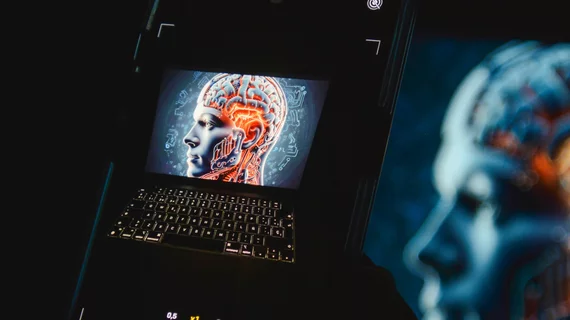Industry Watcher’s Digest
Buzzworthy developments of the past few days.
- Beware ‘drift’ and ‘nondeterminism’ in healthcare gen AI. Researchers at Mass General Brigham have observed an unexpected phenomenon. As they trialed generative AI’s potential to help geneticists identify harmful gene variants via literature review, the team found that repeatedly running the same test dataset produced varying results. They characterized the variability as model “drift”—changes in performance over time—and/or “nondeterminism,” meaning inconsistency between consecutive runs. “If a clinical tool developer is not aware that large language models can exhibit significant drift and nondeterminism, they may run their test set once and use the results to determine whether their tool can be introduced into practice,” the authors comment. “This could be unsafe.” Their study is posted in NEJM AI and is summarized in a Q&A.
- In late July the National Conference of State Legislators noted that states aren’t idly waiting for federal regulation of healthcare AI. The count of states with legislation in the works jumped from three in 2022 to 11 in 2023, the group said, adding that the momentum will likely continue to build in 2024. This week Axios picks up the story from there. “States can often make policy quicker than the federal health bureaucracy and with specific community needs in mind,” reporter Maya Goldman writes. “Still, state officials have run into many of the same problems as their D.C. counterparts, like the lack of clear definitions on AI and differing stakeholder opinions.” Read the rest.
- The FDA has approved 107 AI-equipped medical devices so far this year. Of those, some 78 devices (73%) are for radiology. Cardiovascular care is a distant second, with 10 devices (9%). However, some of the devices FDA considers radiology-specific are also used in cardiology. Cardiac Wire makes the clarification in an item posted Aug. 12. “Although actual cardiovascular AI use in the clinic is in its early stages, the large and growing list of FDA-cleared cardio AI products is a reminder of the innovations taking place in this arena,” editor Jake Fishman writes. “That innovation appears to be leading to more cardiovascular AI products, with more diverse use cases, and should eventually lead to larger increases in clinical adoption.”
- Healthcare AI is largely about pajama time. For now, anyway. And what is “pajama time?” It’s the idea that, “for every hour a physician spends on the patient, they spend two hours searching for information and piecing things together.” Often those two hours don’t come until the good doctor is home for the night. The observation is from Aashima Gupta, Google Cloud’s director of global healthcare. She was one of three panelists at a VentureBeat event earlier this summer. A video of the session is available for viewing here.
- TensorFlow is No. 1 in Analytics Insight’s book. TensorFlow is Google’s open-source framework for developing deep learning applications, image- and speech-recognition models and NLP toolkits. Analytics Insight is a journalism outfit covering emerging data-driven technologies. The latter has posted its picks for the best AI toolkits for building apps. Six more made the list and received a writeup.
- AI and platform engineering—what a natural pair. “Agility and flexibility are critical to holistically addressing AI’s velocity and uncertainty,” explains CDS principal consultant Roger Campbell at State Tech magazine. “Platform engineering provides the developer infrastructure needed to get services and applications from a development environment to a production environment quickly and securely.” Interest piqued? Read the piece.
- Make way for chain-of-thought AI. Evidently a refinement of mere explainable AI, the technology behind the new acronym on the block—“CoT AI”—gives its users step-by-step explanations of its decision-making process. “By revealing the intermediate steps in its reasoning,” Pymnts reports, “CoT AI allows researchers and users to better understand how the system arrives at its conclusions. This increased transparency can potentially enhance accountability in AI-driven organizations.”
- IBM, Adobe, Arista Networks, ASML Holding and Taiwan Semiconductor. These are five of the 10 best stocks to buy for investors who favor companies that have AI and automation as a central part of their businesses. The lineup was compiled by Argus and is covered by U.S. News & World Report.
- Recent research in the news:
- Carnegie Mellon University: Researchers outline promises, challenges of understanding AI for biological discovery
- Carnegie Mellon University: Researchers outline promises, challenges of understanding AI for biological discovery
- AI funding news of note:
- From AIin.Healthcare’s news partners:
- Health Imaging: FDA adds dozens of AI-enabled radiology applications to list of clearances
- Cardiovascular Business: Cardiology still a leader in healthcare AI, trailing only radiology in FDA-cleared algorithms
- Health Imaging: FDA adds dozens of AI-enabled radiology applications to list of clearances

